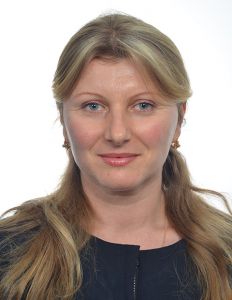Towards an English – Georgian Maritime Dictionary & Terminology
Anna Tenieshvili is an ambitious Georgian philologist of the English Language who is in love with her profession. That’s why ELEXIS supports her undertaking – she’s been experiencing a lack of proper Georgian terminology and modern dictionaries for a long time, so she decided to do something about it.
How did you learn about the ELEXIS travel grants?
As a subscriber of the EURALEX page, I read about the announcement of the call for an ELEXIS travel grant on Facebook. I have had an idea about compiling a new English-Georgian maritime dictionary and actually presented the project at the international conference “International Terminology: Translation and Standardization”, which was held at Tbilisi State University. Therefore, I decided to apply for an ELEXIS travel grant to get the opportunity to gain experience at a European University.
“Raising the issue of perfecting Georgian maritime terminology
and creating a Georgian-English maritime dictionary
are important for the development of
maritime education and training and, consequently,
for establishing Georgia on the international maritime arena.”
What is your project about?
My project is related to the compilation of a new English-Georgian maritime dictionary and the creation of a Georgian maritime terminology.
Raising the issue of perfecting Georgian maritime terminology and creating a Georgian-English maritime dictionary (paper and electronic/online) are especially important for the development of maritime education and training and, consequently, for establishing Georgia on the international maritime map.
In my opinion, as English is official language of the maritime field (as established by International Maritime Organization (IMO) based in London), it would be best if calquing takes place first from the English language.
That would contribute to the internationalization of terminology, and this, in turn, would facilitate communication between specialists of the maritime field. It is also important to ensure the co-existence of national terms and terms that have recently entered the language.
“It is necessary to define
methods for the creation and development of
a Georgian maritime terminology.”
What is your background that brought you up to this point?
I hold a PhD degree in English Philology. The title of my dissertation was ‘Technical Text: Linguistic Specifics, Problems of Translation.’ Since I am working in Maritime Education, I am constantly confronted with the problems this field experiences in my country, which are very often caused by a lack of terminology and absence of relevant modern dictionaries.
I have written several articles related to the internationalization of technical terminology in general and of maritime terminology in particular.
I also hold a MSc in Maritime Affairs from World Maritime University, and I specialized in ‘Maritime Education and Training’. Therefore, I was invited for a practical training to the Maritime Administration of Georgia.
The necessity to create a Georgian maritime terminology and dictionary was raised by my colleagues there, so I decided to initiate the project “Why it is necessary to create and adopt Georgian maritime terminology”. I presented my idea at the international conference “International Terminology: Translation and Standardization” held at Tbilisi Ivane Javakhishvili State University. This project became the basis for the proposal I submitted to the Dutch Language Institute, which was accepted. That’s how I received an ELEXIS transnational travel grant.
Where does your interest in languages/lexicography come from and what keeps you motivated?
My interest comes from my profession:
I am a philologist of the English Language, and I love my profession!
I love my job of teaching technical English to students, which constantly brings up new ideas, and I love trying to find ways to implement those ideas in my work.
Anna Tenieshvilli submitted the paper “The new online English-Georgian Maritime Dictionary Project. Challenges and Perspectives.” to EUREALEX XIX, it available here.
Find out more about ELEXIS visiting grants and former winning projects:
| Profile: Anna Tenieshvili | ||
| Travel Grant | Call 2 | |
| Period of stay | 17.6.2019 – 28.6.2019 | |
| Project title | English – Georgian Maritime Dictionary | |
| Home Institution | Georgia | |
| Hosting institution | Dutch Language Institute (INT, the Netherlands) |
#elexis_nl |





